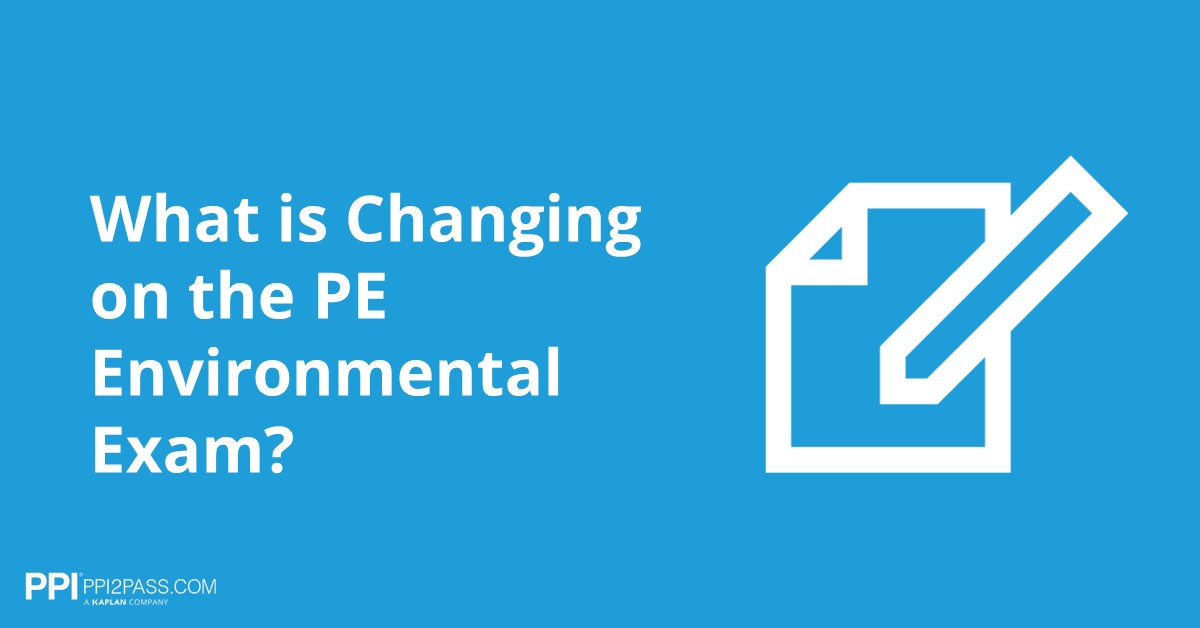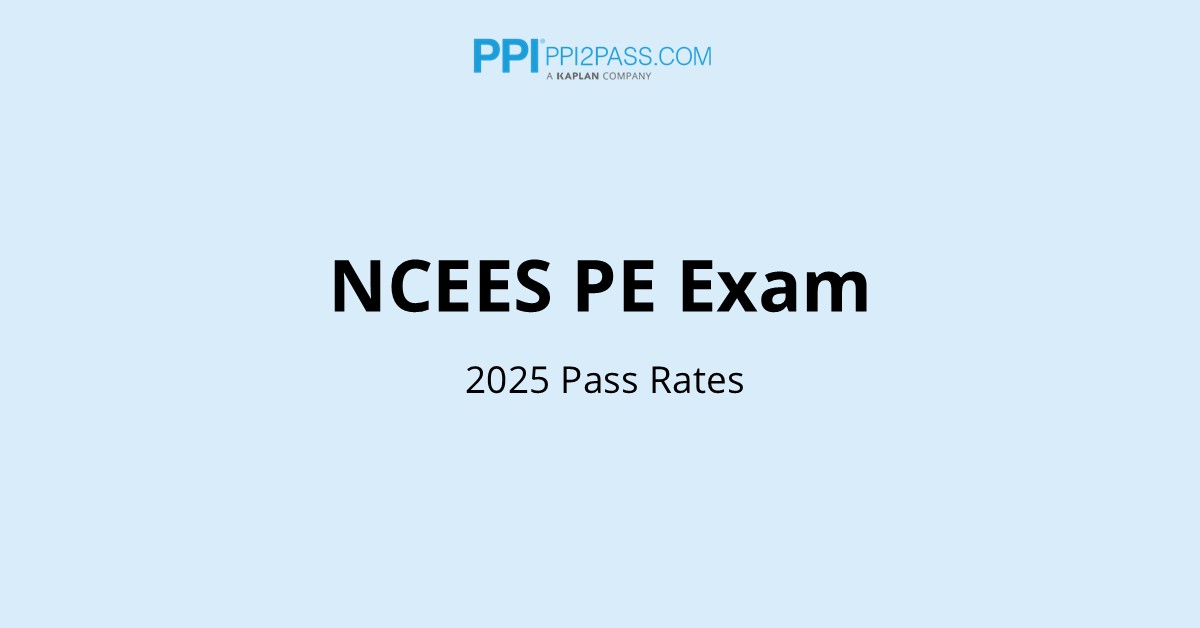Author Spotlight: Michael R. Lindeburg, PE
By: Michael R. Lindeburg, PE
October 7, 2020

Michael R. Lindeburg, PE, is one of the best-known authors of engineering textbooks and references. His books and courses have influenced millions of engineers around the world. Since 1975, he has authored over 40 engineering reference and exam preparation books. He has spent thousands of hours teaching engineering to students and practicing engineers. He holds bachelor of science and master of science degrees in industrial engineering from Stanford University.
Q. How was PPI started?
A. Actually, it all started in the late 1970s at a copy machine at GTE Lenkurt. l was waiting my turn at a copier and started chatting to John, a fellow engineer. John was copying a syllabus of sorts for an engineering review course for staff who wanted to get a professional engineering license. I asked what book they were going to use. When I was told what book they had chosen, I said, "That's a terrible book—it's totally outdated." John said, "If you're so smart, why don't you teach the class?" I thought that would be fun, so said I would! When studying for the licensing exams myself a few years earlier, I could not find any suitable exam review book, so I had put together notes for my own self-study. I dug up those old study notes and put together weekly lectures based on my recollection of the exam subjects. In addition, I prepared some handouts for the students.
I found that I had a knack for explaining subjects in a logical manner so that others could learn and retain the information. So, I left GTE Lenkurt and started my own home business—the Professional Engineering Registration Program (PERP). PERP morphed into the Professional Engineering Institute, a non-profit educational organization which offered engineering licensing classes on the San Francisco Peninsula. I wrote a chapter for each week's lecture, and my wife, Elizabeth typed it on a Sear's electric typewriter and got it printed. We assembled the chapters in a bright yellow binder so that, by the end of the course, students had a "big yellow book."
I improved and expanded the content for each course offering. Soon, we were getting requests for the "book" from people in other areas who couldn't travel to our courses. We decided to get a cost quote to print the material in its entirety. We discovered it was a lot cheaper to print a whole book than to have the local printer produce the chapters individually and put those in a binder. So, we kept the Professional Engineering Institute as the venue to offer classroom courses for all the engineering licensing exams and started Professional Publications, Inc. to produce and market the printed materials. Fortunately, the home that we had purchased as a young married couple had a large enclosed patio where we stored and shipped books around the country. It was great having our "business" in our home. About the same time that the books were published, we had become parents. The only thing more fun than teaching and writing was being a parent! Most people take coffee breaks; I took baby breaks!
I found that teaching the material in front of a live class very beneficial to improving the written materials. Students gave honest feedback on what was clear and what needed more explanation. Besides the lectures being beneficial to writing clearly, I really enjoyed teaching and finding ways to make engineering interesting and fun. However, the classes were held for three hours at night. When my four-year-old daughter, Jenny, asked me, "Daddy, why aren't you home anymore at night to play with us?" I realized that I had a greater love than teaching engineers; it was playing with our little girls, reading them books, and telling them stories of fairies in a far-off land. I finished that course, which was the last classroom course I ever taught. I found other instructors to continue teaching the courses based on the review manuals I had written. The instructors through the decades have brought their own personalities and insights, and have continued to improve what we started 40 years ago as PERP.
I often get the question at conventions, "What's your best book?" My answer has always been, "The two best books I ever wrote are our two girls."
Preparing for the PE exam? Test your skills with a free sample quiz. Choose your discipline: PE Civil, PE Electrical, or PE Mechanical.
Q. What are the most important elements of a PPI review manual and what makes them the best?
A. My review manuals are the best because I give the customer everything they need. This applies to what they need to not only pass their exam, but also to become excellent engineers. I write my books to hold all the knowledge an engineer needs to know to be competent in their profession. As they’re studying, sure they’re learning the information they need to pass the exam but, they’re also learning what they need to pass in their careers. The latter is even more important to me than the exam. But for the exam, I always make sure my review manuals have an extensive, thorough index. An extensive index is critical to be able to find the information quickly.
Q. Why do you offer a passing guarantee?
A. I offer a passing guarantee because I stand by my products 100%. There’s nothing more important to me than quality. I spend a lot of time writing my material to be thorough, clear, and accurate. I know the exam specifications, and I know what engineers need in order to pass. I’m confident that as long as an engineer truly puts in the time studying with my products, he or she will pass the exam. The passing guarantee is there to support this.
Q. Why is licensure important?
A. There are many good reasons why an engineer should be licensed—besides the obvious career development reason. The professional engineer (PE) license will of course set one apart from other engineers without their PE license, and the PE license will expand career growth opportunities. For those engineers who want to be consultants, or who want to be able to prepare, sign, seal, and submit engineering plans, the PE license is an absolute requirement. But the PE license is more than these benefits. The PE license marks someone as a leader in their field. It’s a prestigious standard recognized by industry professionals, employers, and the public that shows a commitment to knowledge and skill. It’s a demonstration that an engineer is a true professional, and one who is willing to work hard to be the best. It is a badge of honor, worn only by those worthy of it. If an engineer is serious about engineering, the PE license is the way to show it.
Q. What piece of advice would you offer a recent engineering grad?
A. Take the FE exam immediately or soon after graduation while your studies are still fresh in your mind. Then, get a job, internship, or anything that allows you to apply what you have learned in college. Don’t hold out for your ideal, most perfect job. Most likely, that ideal job you’re imagining doesn’t truly exist. Instead, be open to anything that will offer you the ability to apply what you’ve learned in college. College is not the “real world,” and in order to be a great engineer you have to get out into the real world and start applying what you’ve learned. There will be bumps along the way. You’ll learn the most from your mistakes. Embrace them, then resolve not to make the same mistake twice. In your career, you’ll have good bosses, and you’ll have bad bosses. You can learn a lot from both if you resolve to make the most out of every situation. Don’t be afraid to try new things. You never know when that new thing (like agreeing to teach an engineering class!) will define your entire career path. Smile. Get a good night's rest as often as you can. Develop relationships, even when you’re busy building your career. There is nothing more important in life than family and good friends. Above all else, stay hopeful.
Q. What is your mantra?
A. Always, always, always be honest, legal, and ethical. When making decisions, I always ask myself: Is it honest? Is it legal? Is it ethical? If an idea passes those questions, most likely it will be a good decision. And, always keep a level head. When the world is going every which way, and your next step isn’t clear, stop, take a break, and breathe. In my lifetime as a professional engineer, I haven’t found much that can’t be fixed by sitting down with someone you love, having a piece of pie, and drinking a cup of tea.
Ready to ace the PE exam?
Industry Insights

What is changing on the PE Environmental exam?
See what’s new on the PE Environmental exam, including sustainability updates and expert prep resources.

2025 PE Exam Pass Rates
Review the latest 2025 PE exam pass rates, including the easiest and most difficult PE disciplines by pass rate.

Everything About Structural Engineering
Curious about structural engineering? Learn what structural engineers do and how to get licensed—all in one place.